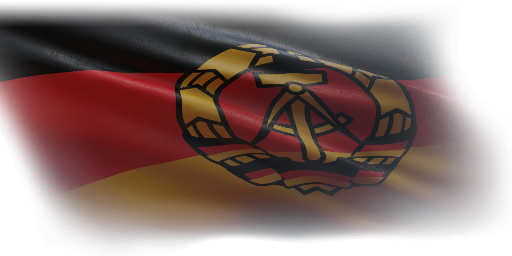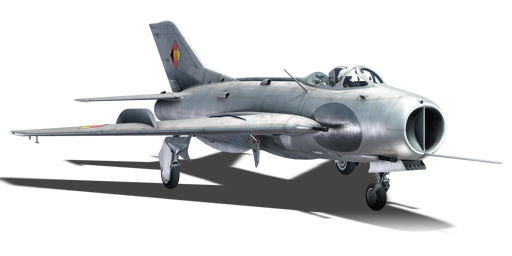




The MiG-19S was a special variant of the MiG-19, incorporating an all-moving slab tail and the Svod long-range navigation receiver. It was armed with three 30 mm NR-30 cannons in comparison to the two found on most other models. The MiG-19S entered production in 1956, and was exported to multiple countries shortly after. One of the countries to receive and use the MiG-19S was Germany, which operated 12 MiG-19S alongside 12 other aircraft of the MiG-19PM variant. The German MiG-19s would serve until 1969, when they were replaced with mid-life models of the MiG-21, such as the MiG-21SPS-K and MiG-21MF
The MiG-19S (Germany) (NATO designation: "Farmer-C") was introduced in Update 1.87 "Locked On" as the German equivalent to the MiG-19PT found in the Soviet tech tree. The MiG-19S may seem worse at first, but in the hands of an experienced pilot, it is merely a sidegrade, if not better than its Soviet tree counterpart. Unlike the PT in the Soviet tree, the German MiG-19S lacks any air-to-air missiles or dedicated search and track radar systems. However, due to the absence of such systems, the aircraft is noticeably lighter. The MiG-19S also receives an extra gun, giving it more firepower and ammo to use. All in all, the MiG-19S is a great introduction to supersonic jets, as it has great performance and flight characteristics, allowing players of the German tech tree to learn kinematic missile evasion techniques and higher tier dogfight doctrine, aspects that the F-104G on the other side of the tech tree lacks.
flaps
flaps
flaps
brake
| Belt | Belt filling | Armor penetration (mm) at a distance: | |||||
|---|---|---|---|---|---|---|---|
| 10 m | 100 m | 500 m | 1000 m | 1500 m | 2000 m | ||
| HEF-I/AP-T/HEF-I/APHE | 48 | 47 | 40 | 33 | 27 | 22 | |
| APHE/AP-T/HEF-I | 48 | 47 | 40 | 33 | 27 | 22 | |
| APHE/HEF-I/HEF-I/HEFI-T | 37 | 36 | 31 | 25 | 21 | 17 | |
| Name | Weight | Slot | ||||
|---|---|---|---|---|---|---|
| 8 × | 84.1 kg |  |  |  |  | |
| 114 kg |  |  | ||||
| 250 kg |  |  | ||||












Flight performance | |
|---|---|
Survivability |
|---|
Weaponry | |
|---|---|